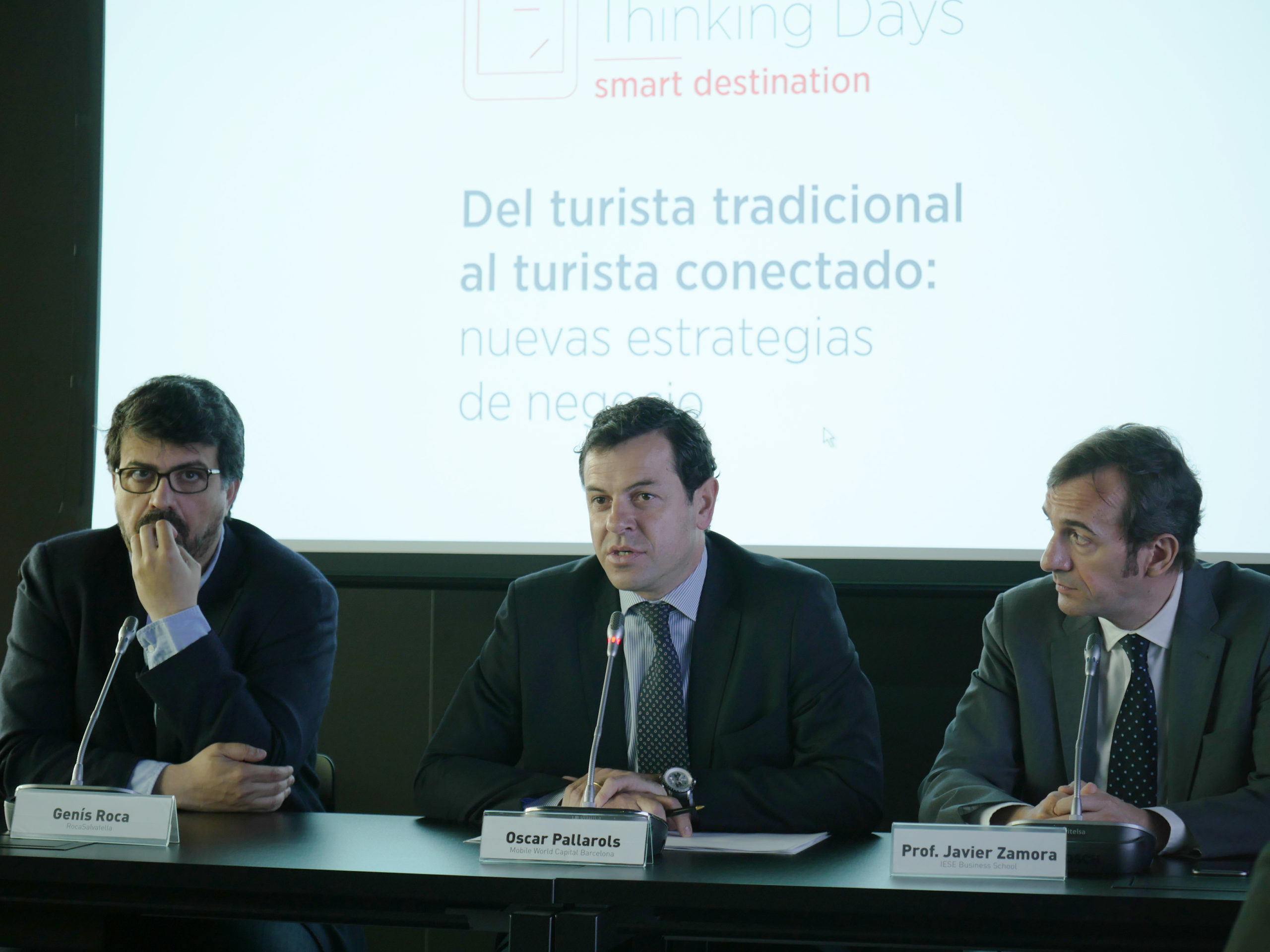
- Mobile Thinking Days is the first forum to analyse how the digital transformation will shape tourism and its competitiveness in the coming years
- The sector’s major challenges include enriching information capture, generating unique user experiences, and increasing the average visitor’s spending

13 de maig de 2015
Mobile World Capital Barcelona, the IESE Business School and RocaSalvatella present the conclusions of Mobile Thinking Days, the first forum for analysis of digital transformation in the tourism sector. The event wraps up its first edition after four days during which 30 sector specialists analysed the challenges facing the tourism sector in Barcelona and the business opportunities that mobile technologies can offer it.
This groundbreaking programme, which also benefitted from collaboration with Turisme de Barcelona, addressed issues vital to the sector like the empowerment of the tourist through mobile solutions, the management of Big Data, and the advent of the Internet of Things (IoT) in tourism settings.
Forging Barcelona into a “smart destination”
The future of tourism in Barcelona hinges on the adoption of mobile solutions to offer unique and customised tourism experiences. The city must reinforce efforts that are already underway, such as augmented reality in museums and mobile experiences at leisure sites and establishments. The experts who gathered for the Mobile Thinking Days underscored the need to comprehensively digitalise the sector, from management to customer service, in order to adopt the same logic and language as the connected tourist.
This new type of traveller, empowered by technology and more demanding, alters the current tourism paradigm. Today’s tourists demand comprehensive options throughout the process – before, during and after their stay – based on their preferences, current location, and time.
In order to satisfy these needs tourism industry agents (dining, services, etc.) and public administrations must reassess current dynamics, business model,s and monetization practices.
Firstly, Barcelona’s tourism sector must incorporate technology into its business management. The digital transformation of tourism calls for more than the incorporation of gadgets and requires a change in the business culture of the organisations making up this new digital mentality.
Secondly, the sector must implement the collection and processing of tourists’ information so as to offer them more customised attention and services. This will make it possible to offer visitors unique experiences that expose them to all of Barcelona’s tourism offerings, strengthening the city’s positioning as a leading tourism destination.
Finally, the new dynamics in the relationships between companies, clients, and tourism offerings will shape the sector’s routines and operations. The appearance of tourism metasearch engines, along with apps and social networks furnishing travelers with any information they request, means that companies must provide constant and immediate answers.
A specialised programme
The Mobile Thinking Days’ (16, 17, and 26 February and 2 March 2015) four working sessions brought together 30 professionals specialised in innovation, technology, strategy, e-business, and marketing from leisure, dining, entertainment, culture, infrastructure, and commerce companies.
Oscar Pallarols, director of the Mobile World Capital Barcelona Smart Living Programme; Javier Zamora, professor at IESE Business School and academic director of Mobile Thinking Days; Sandra Sieber and Josep Valor, professors of Information Systems at IESE; Genís Roca, partner and president of RocaSalvatella; Marc Cortés, partner and general manager of RocaSalvatella; Nuria Oliver, scientific director of Telefónica R&D, and Javier Creus, founder of Ideas for Change, are some of the speakers who participated in the programme.
Stay up to date about everything
Subscribe to stay up to date with the latest content from Mobile World Capital Barcelona.